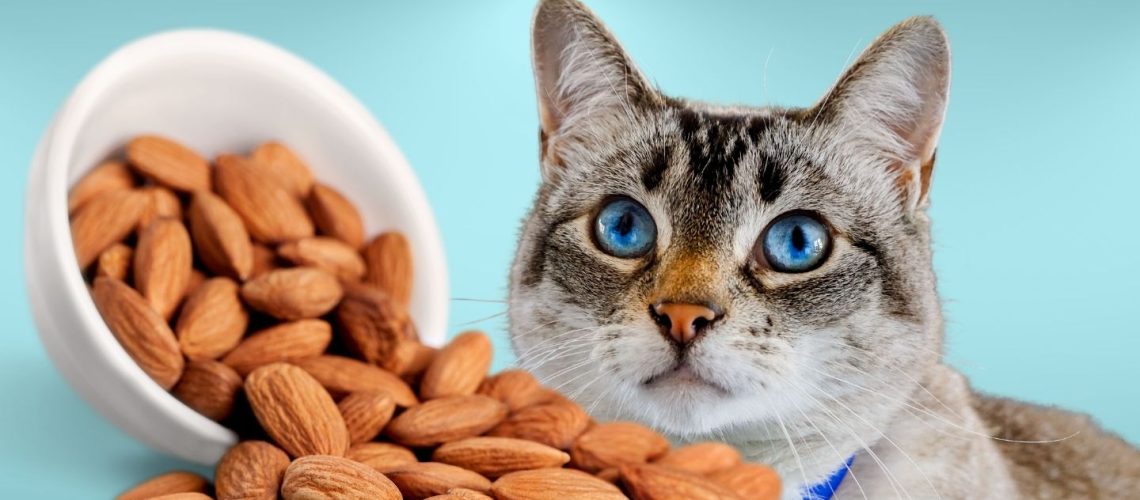The short answer is no, cats should not eat almonds. While almonds are a popular and nutritious snack for humans, they can be dangerous and toxic to your feline friend. It's essential to understand your cat's dietary needs and recognize the potential hazards of certain human foods, including almonds. This article will discuss the harmful effects of almonds for cats, other toxic foods to avoid, and guidance on maintaining a balanced feline diet.
Why Almonds are Dangerous for Cats
Almonds are a type of tree nut that can be harmful to cats due to their high fat and oil content, hard outer shell, and potential for cyanide poisoning from bitter almonds.
Fat and Oil Content
Almonds contain high levels of fat and oil, which can lead to gastrointestinal distress and pancreatitis in cats if consumed in large quantities. A cat's natural diet primarily consists of protein and does not typically include large amounts of fat or oil, making almonds an unsuitable choice for feline consumption.
Choking and Intestinal Blockage Hazards
The hard outer shell of almonds poses a risk to your cat. If not properly chewed or broken down, this shell can cause choking or intestinal blockages. Some signs of choking or intestinal blockages include gagging, vomiting, abdominal pain, and sudden changes in appetite or behavior.
Cyanide Poisoning from Bitter Almonds
Bitter almonds contain amygdalin, which breaks down into potentially fatal cyanide compounds when ingested. Signs of cyanide poisoning in cats include difficulty breathing, excessive drooling, seizures, and sudden collapse. If you suspect your cat has ingested bitter almonds or is exhibiting any signs of cyanide poisoning, contact your veterinarian immediately.
Recognizing and Preventing Exposure to Toxic Foods
To keep your cat safe and healthy, it's important to be aware of the other toxic foods they should avoid.
Common Toxic Foods for Cats
Some other harmful foods for cats include:
- Chocolate
- Grapes and raisins
- Onions and garlic
- Anything containing caffeine
Knowing the risks associated with these foods and keeping them out of reach of your cat can help prevent accidental ingestion.
Keeping Cats Safe from Harmful Foods
To protect your cat from harmful foods, follow these tips:
- Store toxic foods in secure containers or cabinets
- Dispose of food waste in a lidded trash can
- Monitor your cat while cooking or eating
- Educate family members and guests about the dangers of certain foods for your cat
Alternatives to Almonds and Other Toxic Foods
Ensuring a balanced, healthy diet is the best way to keep your cat happy and well.
Safe Treat Options for Cats
Some cat-safe treats include:
- Cooked, unseasoned chicken or turkey
- Freeze-dried meat treats
- Specially formulated cat treats
- Small amounts of canned tuna or salmon (in moderation)
Always practice moderation when providing treats, and keep them to no more than 10% of your cat's daily caloric intake.
Creating a Balanced Feline Diet
A high-quality cat food designed for your cat's specific activity level, age, and health needs is essential in promoting overall well-being. Consult with your veterinarian for personalized dietary recommendations and guidance on appropriate portion sizes.
In Conclusion
In conclusion, while almonds may be a tasty treat for humans, they are dangerous and potentially toxic for cats. It's important to keep almonds and other harmful foods out of reach of your feline friend, and to stick to a balanced diet of high-quality cat food. Keeping a close eye on your cat's environment and understanding their unique dietary needs will help ensure their safety, health, and happiness.







